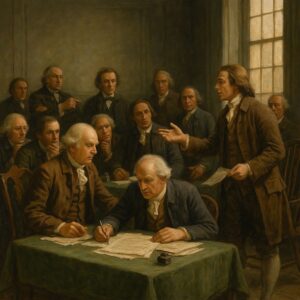I like sharing my thoughts, opinions, and experiences about the world around me—without turning the focus inward or making things overly personal. I’ve always been curious about how people live, think, and interact beyond their familiar surroundings, especially knowing that many never get the chance to venture far from where they were born. I’ve been fortunate to travel around the world, and those experiences have shaped how I see things. Travel has a way of challenging assumptions, broadening perspective, and revealing how much we have in common despite cultural differences. When I write, I enjoy reflecting on what I’ve seen and learned, and sharing those observations in a way that others can relate to, whether they’ve traveled extensively or not. My goal isn’t to tell a personal story for its own sake, but to offer insight, perspective, and thoughtful commentary drawn from real experiences. I write to explore ideas, compare viewpoints, and share what the wider world has taught me along the way.
Author's posts
The Travelers Within: Souls, Aliens, and the Eternal Mission of Spreading Life
Imagine for a moment that your life, as vivid and personal as it feels, is not entirely your own. You wake each day, make choices, carry memories, and feel emotions as uniquely yours — yet beneath it all, there might be something greater moving through you. For thousands of years, humans have described this “something” …
From Saint to Sleigh: How Kris Kringle and Santa Claus Became Christmas
The story of Santa Claus and Kris Kringle is not a straight line but a long, winding journey through history, language, faith, and folklore. What we recognize today as a single cheerful figure is actually the result of several traditions blending together over nearly two thousand years. Each name—Santa Claus and Kris Kringle—comes from a …
The Quiet Miracle of Christmas
Christmas does not arrive all at once. It drifts in slowly, almost shyly, carried on colder air and shorter days. It announces itself in small ways long before the calendar confirms it—an extra light glowing in a neighbor’s window, a familiar song playing softly in a grocery aisle, the sudden urge to reach out to …
The Roots of Gratitude: How Thanksgiving Became America’s Defining Celebration
Thanksgiving in America is one of those rare cultural moments that somehow manages to blend history, myth, gratitude, family, food, and national identity into a single day. It arrives each year wrapped in a sense of ritual familiarity—the turkey in the oven, the scent of cinnamon drifting across the house, families gathering around a table, …
Forging a Fragile Union: The Day America Tried Its First Government
In the autumn of 1777, as the air grew colder and the Revolutionary War lumbered into yet another year of uncertainty, the Continental Congress found itself facing a problem that could no longer be postponed: the United States of America existed only as an idea—an inspiring one, a defiant one, but still a fragile and …
Bridging Cultures in the Gulf: The U.S. Embassy in Manama, Bahrain
In the vibrant capital of Bahrain, where the minarets of ancient mosques rise alongside the shimmering towers of modern commerce, the U.S. Embassy in Manama stands as a symbol of enduring partnership and shared vision. Nestled in the heart of this dynamic island kingdom, the embassy is more than a diplomatic outpost; it is a …
Crowned in Firelight: Why the Sexy Pumpkin Queen Reigns Supreme on Halloween
Every October, pumpkins are everywhere. They sit on porches carved into grinning Jack-o’-Lanterns, line grocery aisles in orange abundance, spice lattes and candles with their seasonal flavor, and glow from windows as symbols of autumn’s magic. But while pumpkins are beloved in pies and celebrated in patch photoshoots, Halloween has given rise to something even …
The Devil’s Pumpkin: How Stingy Jack Lit the Spirit of Halloween
There are few images as instantly recognizable as the glowing grin of a jack-o’-lantern on Halloween night. Its crooked smile, its flickering eyes, the eerie glow spilling out into the darkness—it’s the very heart of the holiday’s atmosphere. But behind that simple carved pumpkin is a story, an old tale whispered across centuries, that begins …
Knockout Allure: Why the Sexy Ring Girl and Boxer Combo Dominates Halloween
Halloween is a spectacle of transformation, a night where you can be anything you want. Some become creatures of the night—witches, vampires, zombies. Others lean into fantasy—fairies, angels, goddesses. But there’s one costume that hits harder than the rest, one that combines athletic power with undeniable charm, and one that goes viral every single year …
Gulf Currents, Global Ripples: The 21st IISS Manama Dialogue 2025
It is dawn in the capital of the Kingdom of Bahrain, and in the elegant halls of the Ritz-Carlton in Manama delegates from across the world gather. Ministers in dark suits, military officers in uniform, strategic thinkers clutching tablets and notepads, journalists lining up microphones — all converge for the twenty-first edition of the Manama …
Electric Chaos: Why the Rock Star Diva Rules Halloween
Every Halloween night, when the streets thrum with costumed chaos and music pulses from house parties, clubs, and festivals, one figure always finds herself front and center. She isn’t a monster. She isn’t a witch. She isn’t a queen from myth or a ghost from folklore. She is something even more magnetic, something real yet …
Dark Divinity: Why the Sexy Angel of Death Slays Halloween Every Time
Halloween thrives on opposites: life and death, light and dark, innocence and corruption. And no costume embodies those juxtapositions more powerfully—or more seductively—than the Sexy Angel of Death. Draped in lace, draped in mystery, her black wings spread wide like a promise and a threat. She doesn’t creep or crawl into the party—she descends, commanding …
Pixelated Temptation: Why the Gamer Girl Costume Levels Up Halloween
Halloween is the one night where every identity can be tried on, tested, and performed. Vampires drain the room with their crimson allure, witches cast shadows in sequins and lace, devils smolder with horns and tridents. Yet amid the supernatural and the monstrous, a new icon has emerged in the cultural zeitgeist—one that didn’t come …
Enchanted Spark: Why the Sexy Fairy Spreads Her Glitter Over Every Halloween
Every October, when the air is crisp with possibility and the nights shimmer with imagination, there is one costume that always seems to flit through the dance floors, glow in the neon lights, and glitter across every Instagram feed. She is not stitched together from nightmares like a zombie, nor does she sprout from mythology …
Pep, Power, and Playfulness: Why the Cheerleader Costume Always Wins on Halloween
Halloween thrives on icons. Every October 31st, the world’s stages—from smoky basements to rooftop bars, from crowded nightclubs to suburban streets filled with trick-or-treaters—transform into theaters of transformation. People become vampires, witches, ghosts, pirates, superheroes, and monsters. But amid the blood, fangs, and cobwebs, one costume consistently jumps higher, smiles brighter, and lands in the …
Velvet Temptation: Why the Sexy Bunny Still Rules Halloween Nights
Every October, as the nights grow longer and the world prepares for its biggest masquerade, certain costumes emerge as timeless icons. Vampires stalk in velvet, witches sparkle in sequins, and devils strut in crimson, but one figure hops confidently into the spotlight, year after year, claiming her throne as one of the most enduring and …
Golden Legacy: Why the Cleopatra Queen Reigns Over Every Halloween
Every October, when costumes flood the streets, bars, and parties of the world, certain archetypes rise above the rest. Vampires stalk in velvet and fangs. Witches glide in black silk with broomsticks in hand. Devils sparkle in red sequins and horns. Yet among all the monsters, seductresses, and rebels of the night, there is one …
Commanding the Carnival: Why the Ringmaster Seductress Steals the Halloween Spotlight
Halloween thrives on spectacle, and no costume delivers a spectacle quite like the Ringmaster Seductress. With her tailored mini jacket lined with gold trim, a corset that cinches like a promise of danger and delight, stockings that gleam in the glow of neon lights, and a top hat perched at a mischievous angle, she doesn’t …
Electric Allure: Why the Sexy Bride of Frankenstein Is Halloween’s Timeless Temptress
When the lightning cracks across the October sky and the world leans into the eerie thrill of Halloween, certain figures crawl, slither, and storm their way into parties, streets, and social feeds. Among the vampires with blood-red lips, the witches in pointy hats, and the zombies smeared in gore, one particular icon continues to hold …
Undead Allure: Why the Zombie Babe Reigns Supreme on Halloween
Halloween has always been about the collision of opposites—life and death, fear and fun, beauty and horror. Few costumes embody that fusion as perfectly as the Zombie Babe, a look that combines the sultry with the sinister, the glamorous with the grotesque. Dressed in ripped fishnets that cling like remnants of a former life, blood …































